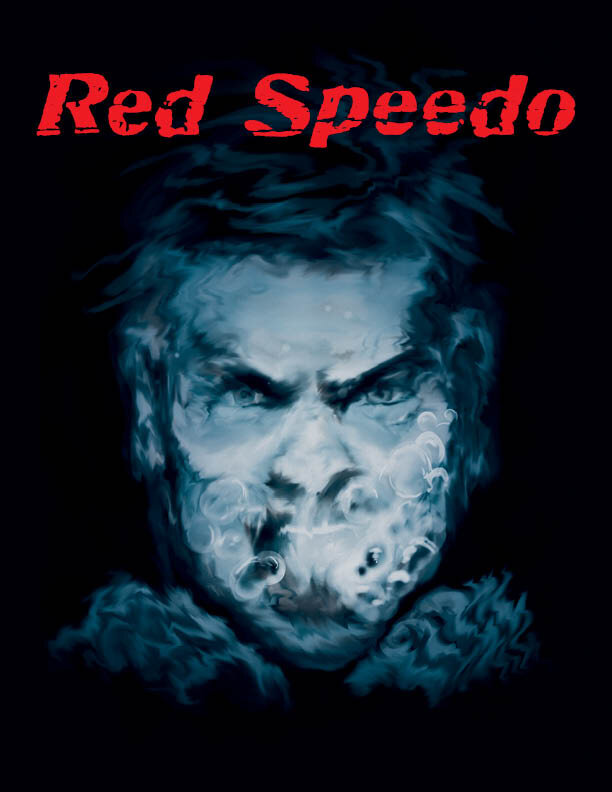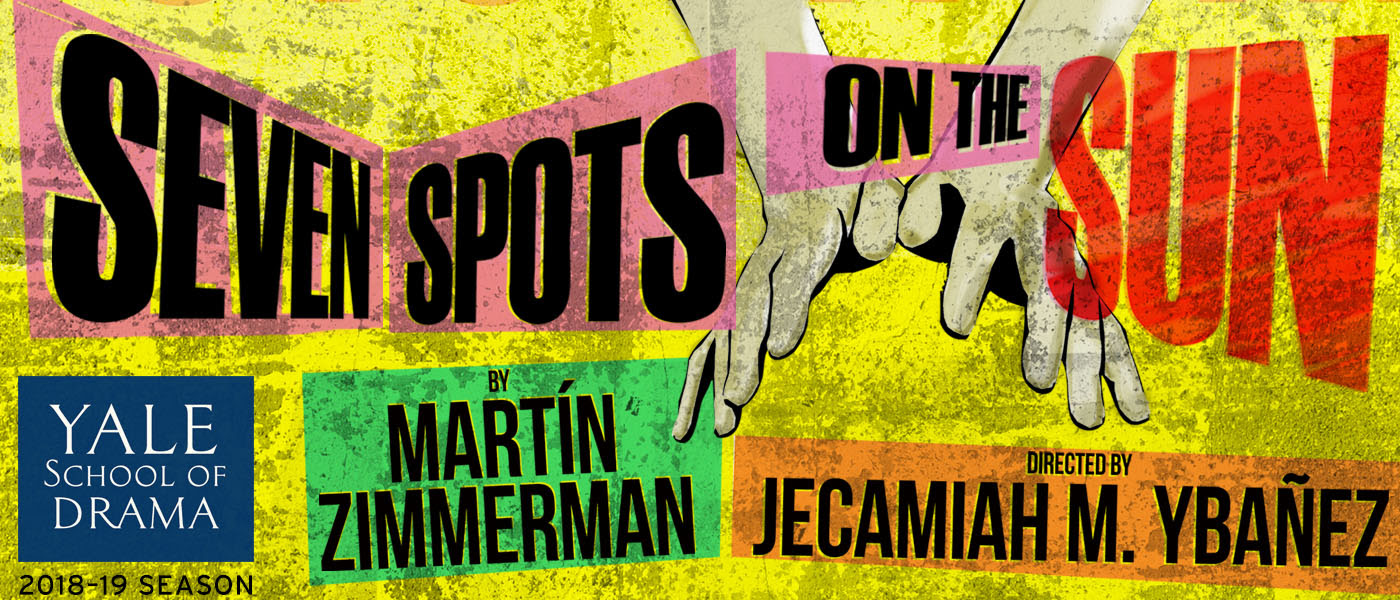Review of Is God Is, Yale Cabaret
One way to describe Aleshea Harris’ Is God Is—at Yale Cabaret directed by Christopher D. Betts, a second-year director at Yale School of Drama—is as a revenge play that might have been written by Sam Shepard, if Shepard were a black woman. Harris gleefully enters into Shepard terrain: the myths of the family played out in a world that mixes the underclass with the leisure class and grabs from tropes of the Western—with its willingness to trade on being compelled by fate—the road picture, as the place where paired psyches find bonds and lines of fracture, and the hoary story of how a younger generation must forge its being in some kind of struggle or fulfillment with an older one. The irony and absurdity of Shepard is there too, as well as a gripping sense of a cracked world where all debts must be paid in blood.
But there’s a further irony Harris mines as well. Sometime in the 1960s the phrase “black comedy” became pervasive, not as a racial distinction but rather to signify the notion that some comedy is “dark,” not vanilla, not easy-going and safe. Harris creates a form of black comedy that is deliberately black in a racialized way, making her African American characters take their rightful place in a certain American mythos. It’s as if all the nods to black culture of a Hollywood filmmaker eager to trade in appropriation—like Quentin Tarantino—has finally met a sensibility equal to that incentive. This is black black comedy and its ultimate target is not a culture of exclusion or misappropriation, but of a country—the one we all live in—that is full of deep injustices that can sometimes be entertainingly offset by violent revenge. The violence is almost cartoonish, in a nod to the way action films generally treat these matters, but because this is theater in a small space there is discomfort too.
Twin sisters Racine (Ciara Monique) and Anaia (Tavia Hunt) suffered bad burns as children in a fire set by their father that, they believe, left their mother dead. They were together through a series of foster homes as objects of, at best, pity, Anaia with lasting scars all over her face, Racine with scars covered by clothing. As the play opens, with the twins about 21, they learn by letter that their mother is still alive and living in a care facility in the “dirty south.” They journey to visit her. Known in the playbill as She, their mother (played by Abigail Onwunali) is known by the girls simply as God. Making her directive that they kill the man who tried to kill her a “mission from God.”
In some ways that set up is the best of the play. The interplay between Monique and Hunt is full of a kind of knowing mystery that compels us to figure out this world even as they must. Nothing like incredible childhood trauma to make the present an extension of the past. And Onwunali’s She is scary, funny and incredibly evocative. As the scripture has it: “thy God is a vengeful God,” and the girls accept their mission readily enough even though, as Anaia the “emotional” one says, they aren’t killers. Watching Racine transform into one is a journey in itself, one that Monique accomplishes by going deeper into the character, letting us see her as, indeed, her cold-blooded father’s child.
The first task the girls’ undertake—to worm their father’s whereabouts from Chuck Hall (Matthew Elijah Webb), a former associate of dad’s, now drinking heavily to get up the nerve to pill himself to death—is a classic of miscommunication with plenty of style to spare. Hall is a mess but he’s memorable and the girls are apt to think aloud in tandem in a very amusing way. Next up is dad’s yellow house on a hill, shared with his very bougie family, quite comically rendered by Gloria Majule as Angie, a Real Housewife at her wits’ end, son Riley (Anthony Brown), an arugula fetishist whose final freak out is full of manic energy, and his twin brother Scotch (Seun Soyemi), a would-be poet giddy with inspiration. Once Angie’s out of the way, the girls get mistaken by the boys as strippers and . . . well, the entire scene plays out as a takedown of showdowns and of a certain kind of status lifestyle that maybe needs to be beaten into submission.
Finally, there’s Brandon E. Burton in bad guy getup, complete with black cowboy hat, as Man. He’s well-spoken (aren’t villains always?) until he explodes, and he’s chilling in his utter detachment. The possibilities for rapport between father and offspring are there and might beguile us for a moment—particularly as Burton renders well the fascination of a man beyond the pale who might be capable of anything and who knows it—but we know in our hearts this is a “last one standing” deal.
That the show is so entertaining is a credit to Betts and his cast, all of whom create indelible characters, and his team, which uses the entire Cab playing space to make the action sprawl as it must—shout out particularly for the set design by Stephanie Bahniuk with Marcelo Martínez Garcia, and to Anteo Fabris’ sound design and the work on fights and intimacy of Kelsey Rainwater and Jonathan Jolly (which includes, I imagine, how to play dead body or maybe dead body convincingly in close proximity to the audience).
This version of Is God Is is not a play of fixed locations. It’s a play of legendary spaces we find ourselves in the midst of at key moments. Stage and the wider playing area blend to create the world the twins move through on their mission—which reads as a fate, as an idée fixe, as a plot that makes of parricide a blow against toxic masculinity, and as a final retribution that no doubt creates new scars for the already heavily scarred.
Is God Is
By Aleshea Harris
Directed by Christopher D. Betts
Set Designer: Stephanie Bahniuk; Costume Designer: April M. Hickman; Lighting Designer: Tully Goldrick; Sound Designer/Music Supervisor: Anteo Fabris; Projections Designers: Erin Sullivan and Hannah Tran; Fight and Intimacy Director: Kelsey Rainwater; Associate Set Designer: Marcelo Martínez Garcia; Associate Fight Director: Jonathan Jolly; Scenic Artist: Sarah Karl; Dramaturg: Faith Zamble; Technical Director: Lu Shaoqian; Producer: Dani Barlow; Stage Manager: Edmond O’Neal
Cast: Anthony Brown, Brandon E. Burton, Tavia Hunt, Gloria Majule, Ciara Monique, Abigail Onwunali, Seun Soyemi, Matthew Elijah Webb
Yale Cabaret
January 16-18, 2020








